Quest ideas for kids
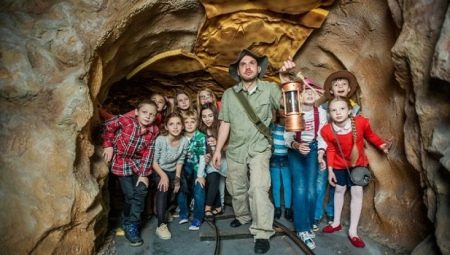
The quest is a search for objects or passing an obstacle course. Today everyone is fond of quests: children, adolescents, adults, professional teams, youth companies, etc., because it is almost guaranteed to be fun, exciting, and often also educational. Such a game is built on solving a chain of logical riddles, and there are a lot of variations of the quest, its form, duration and themes.
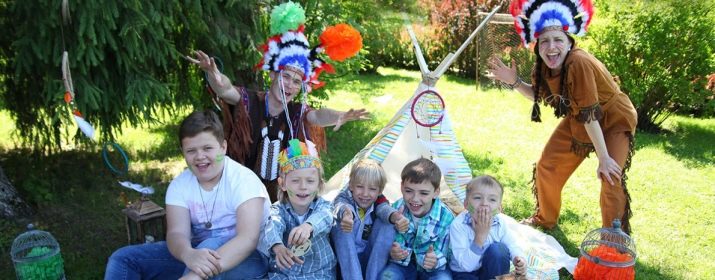
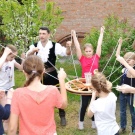




What it is?
If we talk about children's quests, these are game events in which a team participates with a clear goal. To achieve this goal, you need to do everything that the organizers have in mind.
Answering questions, passing tests for physical strength or skills, coping with a creative challenge - there are a lot of scenarios where there can be both.

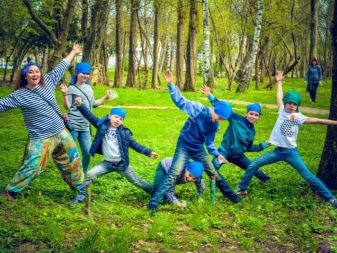
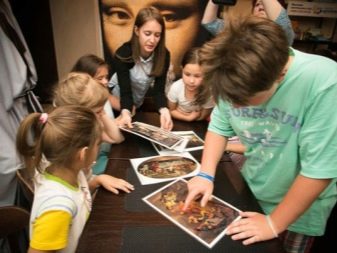
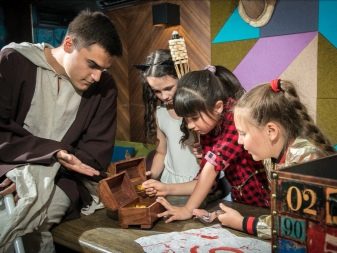
Features of the quest.
- Logic and structure - if this is a semantic and meaningful "vinaigrette", it simply will not work. Tasks should be related to each other, feasible for children, focused on their age and interests.
- Dynamics - without her, the child is elementarily bored. His enthusiasm and passion should not fade away even for a moment. The quest rests on this courage: it is always focused on the feeling of moving forward, of a quick transition to a new step.
- Interesting ending - children in the quest are always looking for something. Sometimes they look for a map showing the location of the prize. Sometimes they immediately look for a treasure, but they have no idea how it looks, how the organizers intended it. But the ending is the apotheosis of the quest, it must always be bright and correspond to the forces that the guys spent in the process of passing the obstacle course.
- Rich toolbox - the children's sensory system should receive a lot of recharge during the quest.If you just answer the questions, this will not happen. Children have to do some experiments, draw, try to solve puzzles, use props, etc. This will be a really successful quest.
- Presence of a presenter - he will be the one who leads the guys to the logical point, to the final. The facilitator knows the script (in most cases he writes it), can predict the reactions of the children, and possible difficulties in the course of solving problems. He is a showman on a quest, who should only provoke the participants, stir up their interest.
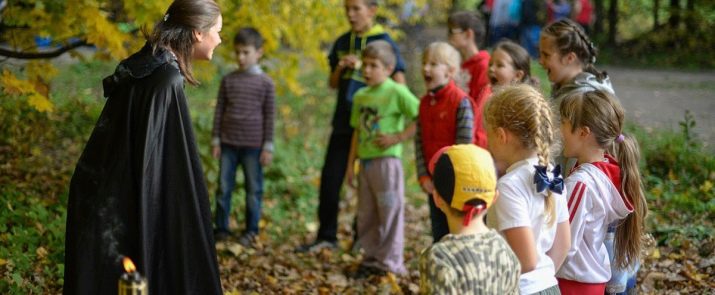
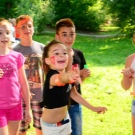
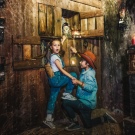
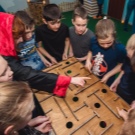
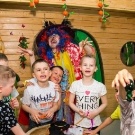
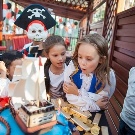
Quests can be organized for children of almost any age. Schoolchildren, and all three age categories, are very fond of quests. For preschoolers, quests are also arranged, only earlier than 4-5 years old they are difficult to "enter". But some simple, small tasks, not long in time, can be organized for three-year-olds.
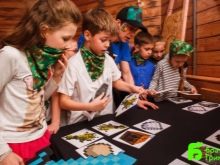
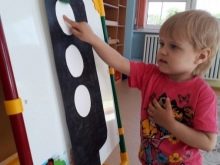

Views
First of all, I would like to divide the quests into professional, amateur and home. Professional - these are those activities for which in most cases you have to pay. They are organized by specialists, they also write scripts, look for decorations and props, select a place, etc. This is an entertaining service that is popular and does not give up its positions.
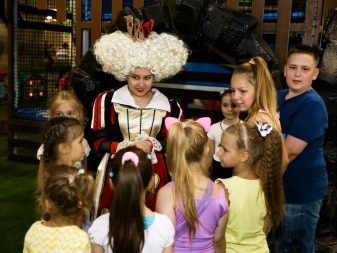
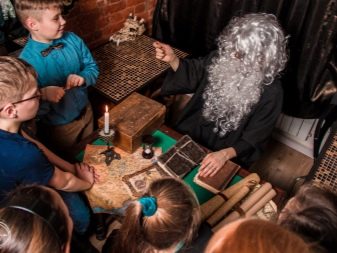
Amateur quests include events that people arrange for themselves: for their families, friends, teams.
For example, schoolchildren arrange a quest for their teachers on Teacher's Day, or at work, on the occasion of a professional holiday, a quest is organized for the team.
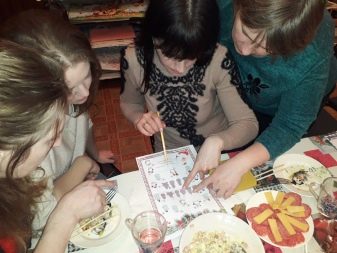
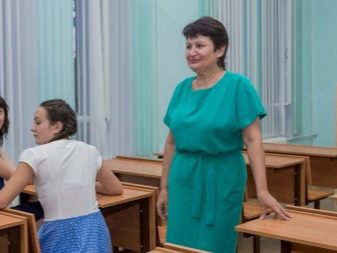
Home ones, as you might guess, are quests organized at home, in an apartment. And mostly these are children's quests dedicated to the child's birthday. Parents either search for a script on the Internet, or write it themselves, or combine what they have found and compiled on their own.
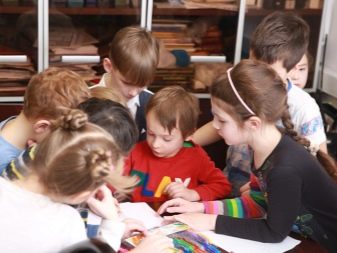
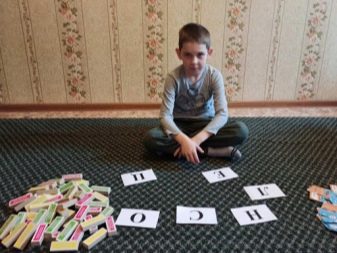
Also, quests differ in topics, and this list will be huge: from spyware to dedicated to a specific animated hit. There are games for passing tasks related strictly to one area, for example, mathematics, fiction, natural history, etc.
There are quests strictly for "Harry Potter", or events that are dedicated to the end of the school year.

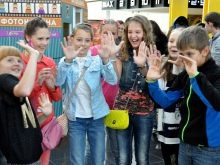
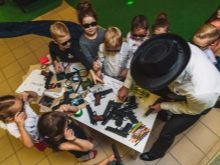
What to consider when preparing?
Preparation is the biggest part of the job. Carrying out requires less effort - as practice shows, everything goes according to a well-oiled scenario, and the children's reactions and their activity energize the presenter and organizers. But preparation requires effort, time, and often money, as well as attention to detail.

Location
If you do not want additional expenses, and a small company is selected for the quest, the game can be played at home. Even in a standard apartment it is possible to do this, and the quest will not be constrained.
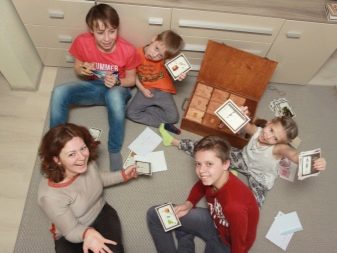
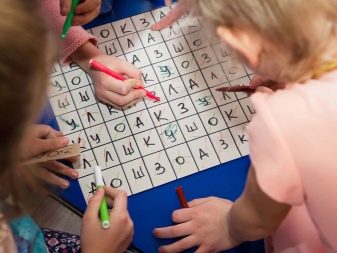
What other options are there.
- Dacha. Leaving the house, running around the yard, looking into the garden, or even visiting the greenhouse gives the organizers carte blanche. In the warm season, of course, all this is easier and more comfortable. But in winter, having your own territory near the house, you can come up with such stages of the quest that cannot be implemented indoors.
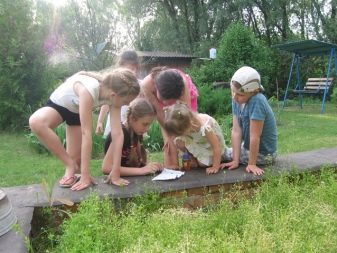
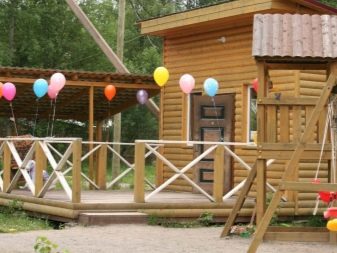

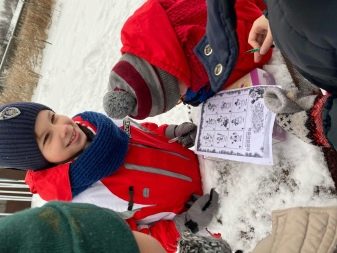
- Children's play center. If you rent a playroom or a party room there, then tenants are practically unlimited in their actions. And this is a good option for those who cannot spend their holiday at home.
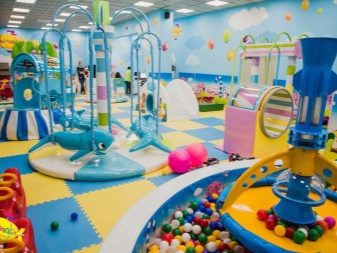
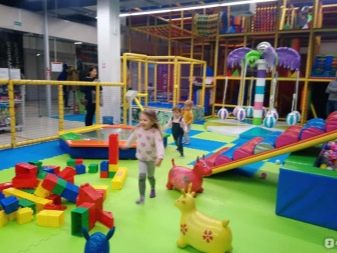
- Rope park. Often, children are invited to such places for their birthday, but for 3 hours to captivate them only with lasagne is a problem that is not always solvable. Therefore, parents can think over the quest, saturating it with the actual possibilities of the rope park.
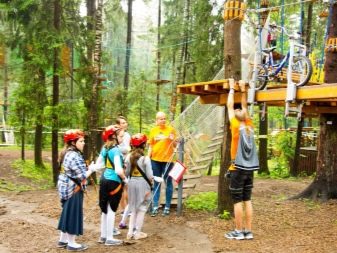
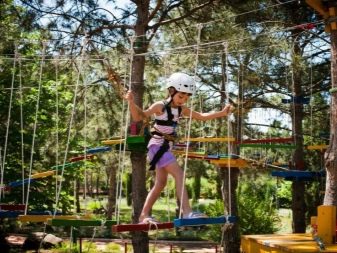
- The courtyard of a high-rise building. Few consider this option, but organizing a holiday there can be simply grandiose. Of course, there will be a lot of spectators and onlookers, but this way the quest will turn into a real show.
The main thing is not to violate discipline and not to spoil the elements of the playground, flower beds, etc.

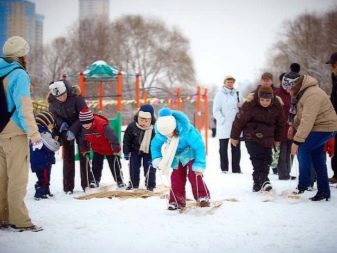
If the quest is school, then the classroom becomes the venue. Sometimes in kindergarten, the management lets the parents in so that they can spend a holiday for the children right in the group - they organize the same quest for the little ones on the occasion of the child's birthday.
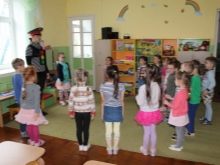

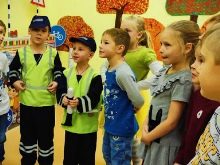
Age
This is practically the most basic aspect of planning. If the children are 3-4 years old, the quest should not be long - a maximum of 5 tasks, and this is the limit. Their attention simply cannot withstand the large volume of tasks, and even with the preservation of intrigue at the end. Therefore, 20-30 minutes of diverse tasks for kids is more than enough.
The children of the elementary grades cope within an hour. Another question is that at a birthday party, tasks usually rarely go one after another. They are evenly distributed over the time of the celebration, that is, there are breaks between tasks.
This is normal, children will not forget about the previous stages, and pauses between active games and treats are also needed. Naturally, the end of the quest should fall on the last hour of the celebration.
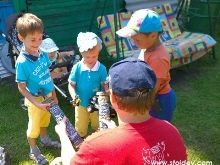


Drawing up a quest chain
This is the very essence of the quest. The tasks should be diverse: the first ones are easy and quickly solved, then more difficult.
Recommendations.
- If the quest is thematic (and in 99% of cases it is so), then it is impossible to go beyond the boundaries of the theme.
- If the questions are complex, you need to give options for answers.
- Actions require clear instructions. If the children have to complete a crossword puzzle, the adult explains how many words there should be, whether the answers are written after the questions, how much time they have, etc.
- The visuals must be perfect. If children are given a puzzle from which a map will be made, it must be good print, thick paper, etc. ...
- The final task should not be ambiguous. Clarity, accuracy and compliance of the result with the description are the key to the success of the quest.
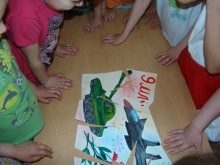

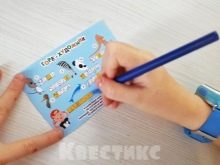
Present
Ideally, they should also be consistent with the theme. For example, if the quest is part of an ocean party, the guys can get binoculars or sets of "Sea stones" or "Gummy turtles" candies at the end.
If you cannot do this, then at least you can arrange, pack gifts in self-made bags corresponding to the theme.



Ideas for interesting tasks
It is worth figuring out what types of tasks can be found in quests.
- Riddles. They are good for warming up, and if they also have humor in them, this is a win-win.
- Puzzles. Of course, they are presented in accordance with the theme of the quest. For example, at a spy party, the puzzle may be in one of the books with a specific description. That is, you also need to try to find a book.
- Notes. Notes for the guys can be made by those heroes who are associated with the theme of the quest. For example, at a pirate party, they will find a bottle with a note from Jack Sparrow (sorry, Captain Jack Sparrow), and on a quest dedicated to space, they will find a note from aliens, which can also be encrypted.
- Encryption. All children adore them. Rarely is a cipher given, the meaning of which must not only be comprehended by oneself, but also the principle of solving it must be remembered. If this is a strange inscription, then the alphabet with the translation of the elements of the inscription into the usual alphabet should be a support for the children. Another question is if he is also hidden, and his searches will only add courage to the quest.
- Magic tricks. Or fun experiments. Something very simple and safe, naturally. For example, the guys have to enter the name of the hero who is puffing into the search card. And in front of them is a series of objects. Participants must guess that a balloon is inflating, and when they inflate it, they will see that SpongeBob is drawn on it, for example.
- Search operations. Let's say children are looking for treasures in a large container of kinetic sand - pebbles, beads, shells, etc.And then from the first letters of the names of the found they will need to make up a word that will become a pass to the next stage.
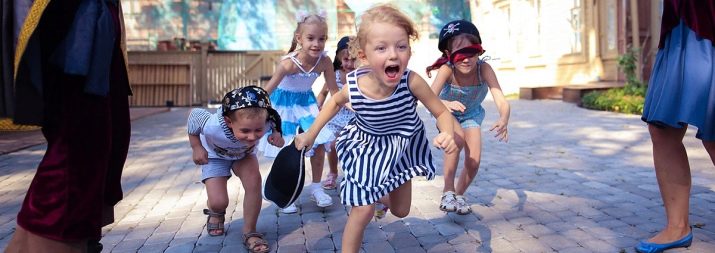
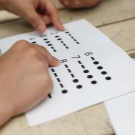
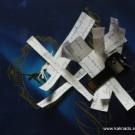
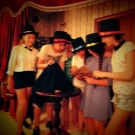


There are no restrictions, it all depends on the imagination of the organizers and their capabilities.
Indoor play scenarios
Below are scenario quest plans that correspond to the most popular themes. They are designed for companies with children from 7-8 to 12-13 years old. The most grateful age for quests is 9-10 years old, on the occasion of such a birthday it is definitely worth arranging a search program.
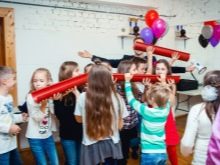


Spy
Spies, military men, detectives - the themes loved by many boys. And girls are not averse to breaking gender stereotypes and showing themselves in such games.
Quest script.
- Acquaintance. Participants need to introduce themselves so as not to give their real name, but to indicate undercover information or callsigns. But they do not invent them themselves, but find them in the designated space. For example, there will be packages in a vase with tinsel. Each participant has a token with his own color: for example, Sasha has an orange one, and then he looks for an orange package, etc.
- Secret telegram. A secret telegram falls into the hands of the team. But not a single word from it is clear, because it is encryption. And to understand what has been written, you either need to read backwards, or catch the connection between numbers and letters in the alphabet, etc. As a result, the telegram will lead them to the place where the next task lies. For example, on the windowsill.
- Evidence. And on the windowsill there will be a box with evidence. From this evidence, you need to understand who they are looking for. If, say, Harry Potter, there will be glasses and a scarf, if SpongeBob is a spatula.
- True or fake. So, in the previous task, the guys found out who they had to find. Let's say it's Harry Potter. So they are looking for a book about Harry, which is somewhere in the room. Once found, they move on to the next task - the book will contain several cards with false and true statements. The task of the guys is to figure out where the truth is and where the fake is. If they cope with the competition, they come to the final task with the right to a hint.
- Final "Exam for a scout". It would be nice to use an adult who would play James Bond. He gives this task to the guys: they have 2 minutes of time for them to remember all the red objects in the room. If everyone is named, the exam is passed, and they receive spy IDs, and with them gifts.
Naturally, this is only the backbone of the quest, it can be supplemented. But 5 tasks for a standard birthday are enough: after all, the guys will also play and want to eat.
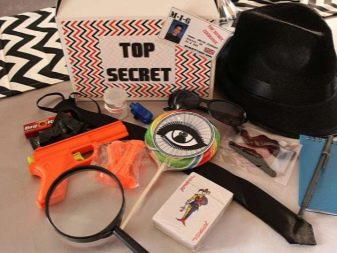
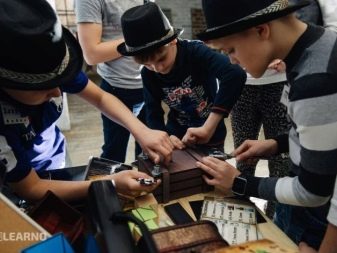
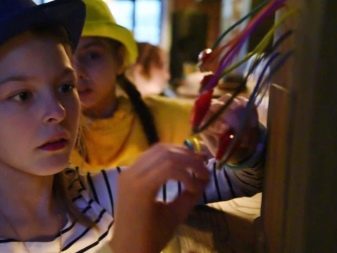
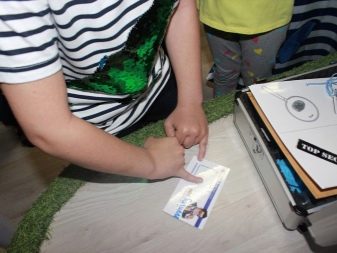
By fairy tales
For children 5-9 years old, this topic will be optimal, especially if there are a lot of girls in the company.
What tasks can be:
- recognize heroes by description (by a voice that can be played on a TV screen without a picture);
- answer quiz questions on fairy tales;
- guess which items belong to which hero (a shoe for Cinderella, boots for Puss in boots, etc.);
- list what dishes on the table are associated with fairy tales ("Little Red Riding Hood" sweets, "Buratino" lemonade, etc.);
- find a golden key that will open a chest with gifts;
- continue well-known replicas of fairytale heroes;
- guess (from three notes) songs from fairy tales;
- add missing elements to the pictures with characters (for example, Morozko's beard, Pinocchio's cap);
- distribute the names of fairy tales in different boxes - separate Russian folk from foreign ones, etc.
And in order for the gifts to be fabulous too, they need to be placed either in a beautiful chest, or inside each gift put a paper certificate for the fulfillment of a wish.
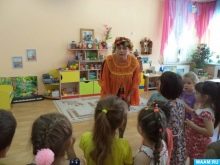
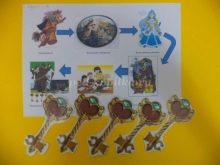
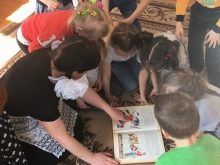
Pirate
You can immediately stipulate that during the quest, the guys move from island to island, and in total they have to visit 5 islands. And only from the last island in the chain a view opens up to the place where the treasure is stored.
What kind of islands it could be.
- Island of the Brave. To overcome it and not stay here, everyone needs to get something out of the hat with their eyes closed and guess what they got. This could be a slime, a rubber frog, a school diary (the worst), etc.
- Dexterous Island. On this island, children will be tested for agility and dexterity. For example, they have to send paper birds to the target, throw darts, or build a high pyramid and not destroy it.
- Veselchakov Island. And here you can play the good old "Crocodile", but you always need to guess something or someone very funny.
- Island of the Smartest. Any puzzles, rebuses, charades, crosswords, literary and mathematical quizzes are used.
- Island of the Faithful. It will be a competition for solidarity. The guys must weave a rope (or a rope ladder), but so that none of the participants leaves the weaving stage. That is, you can transfer a queue to each other, but only so that the sender remains to hold the skein of threads or the threads themselves at a distance. Tore your fingers off the rope - you are out, and the time of weaving for the team is accelerating. Weave strictly for a while.
Having overcome 5 islands, the guys receive a map, only it is torn, you need to collect it, and then it will become clear where the same treasures are. This will be a map of the apartment with the place where the gifts are marked with a diamond.
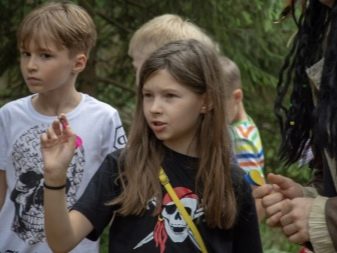
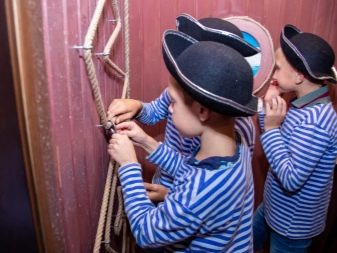
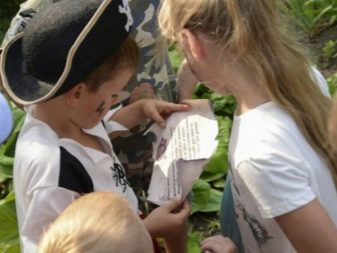
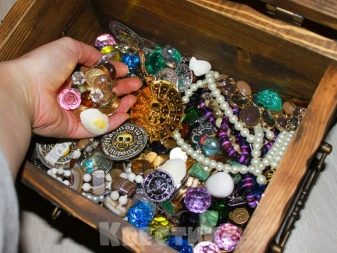
For the holiday
Birthday is not the only reason for quests. There are quite a few holidays that can beautify these quest chains.
What to offer for holiday quest scenarios.
- For Valentine's Day. Make hearts from pieces of photos of those present, inflate heart-shaped balloons, taste "heart" cookies, inside of which there are notes - the options line up one after another.
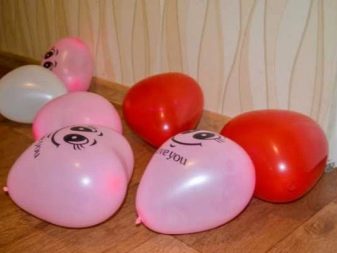

- March 8. Guess what kind of oil it is by the smell of aromatic oils in a test tube. Guess them from the fragments of the biographies of great women (even fairytale heroines). Dress up or braid the doll with your eyes closed. Come up with creative names for all the dishes on the holiday table. Even this can be used to weave a whole quest, but so that the solution of one task is connected with the next.
For example, a doll dressed up with the color of her dress will hint which box contains the text of the next task. A doll in a yellow dress and several colored boxes on the table - that's the solution.

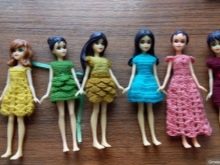

- Last call. Write non-existent lessons in the diary (in the designated columns) - invent interesting names. By reading the essay, find out what character could write it. Find leaves with humorous puzzles under the plate and solve them. Make the whole team a beautiful garland of paper fives and decorate the room with it.
The main thing is not to forget that the prize should not be general, which is difficult to divide, but still individual. Let it be in one place (chest, hat), which will be associated with team loot.

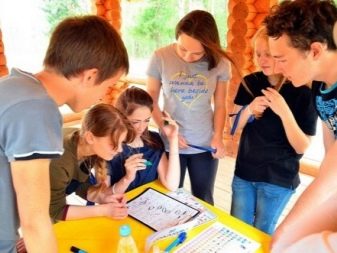
How to spend outdoors?
Absolutely all the same tasks that are applicable for standard themed indoor quests can be performed outdoors. Perhaps with a little adaptation.
What opportunities does the street program provide (in the country, in the park, in the yard):
- you can run and jump, because obstacle courses are possible in the quest, sports accents will only add excitement;
- you can hide what you are looking for under a bench, near a bush and even bury it with your own hands in the ground;
- thanks to the open space, adults can also be involved or help, which is a big plus for a family;
- there is no limit on the number of participants.
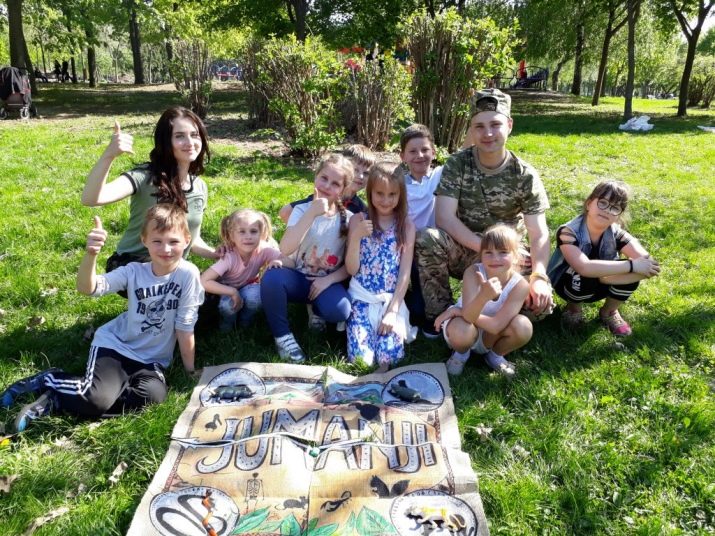
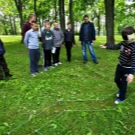

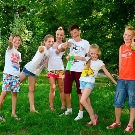
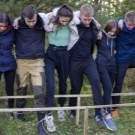
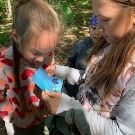
By the way, the sweet table in this case is easily replaced by a picnic. And the children like it more, and the appetite in nature, as a rule, will play out faster, and the participants of the holiday will "sweep away" everything.
Probably, there are very few (or even not at all) such boys and girls who would not be carried away by an interestingly composed quest, if only because their craving for learning new things and playing is the peculiarity of childhood.
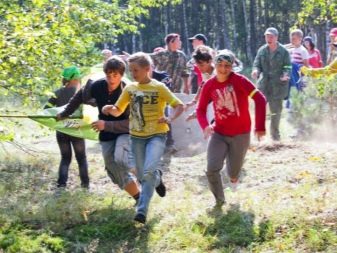
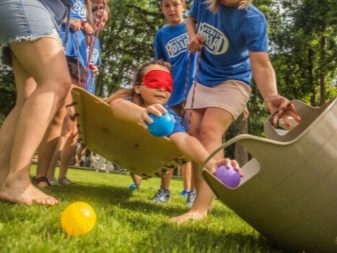
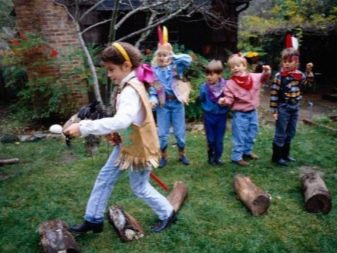










Thank you very much, you helped a lot.